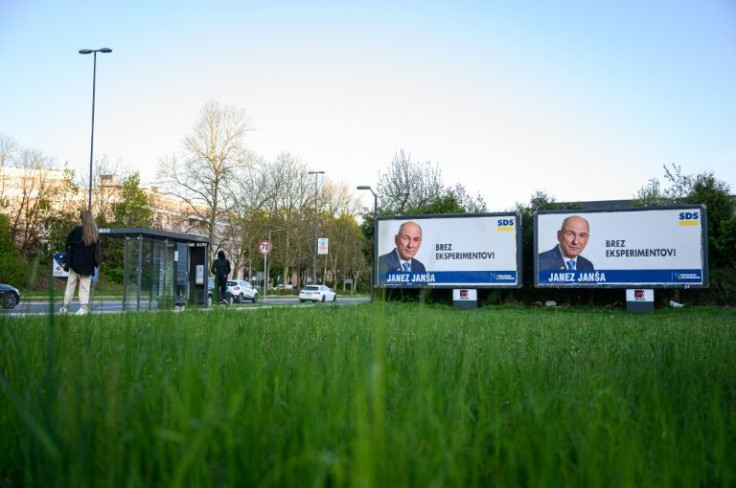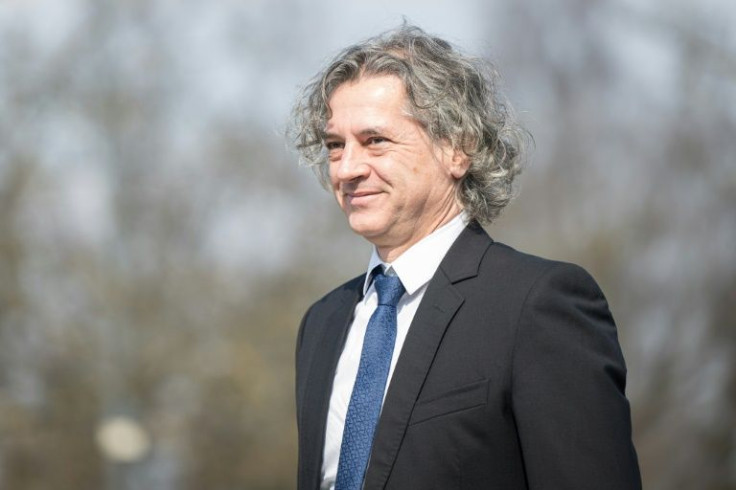Slovenian PM Jansa Risks Defeat In Tight Vote
Slovenian Prime Minister Janez Jansa faces a tight race on Sunday in parliamentary elections billed as a "referendum on democracy" by the opposition in the deeply polarised country.
Jansa, an ally of nationalist Hungarian Prime Minister Viktor Orban and admirer of US ex-president Donald Trump, is polling head-to-head with newcomer Robert Golob, former chief of a leading power company.
Analysts say concerns over the rule of law have boosted the opposition and Golob has a real chance of getting a majority in the Alpine nation of two million, the first ex-Yugoslav state to join the European Union in 2004.
Tens of thousands of people have attended regular anti-government rallies, accusing Jansa of authoritarianism since he took power in March 2020.
The opposition has accused Jansa of using the coronavirus pandemic to dent the country's democratic institutions, violate press freedom and question the independence of the judiciary.
"Slovenia has reached a point it has never been before... It has become one of the biggest troublemakers (in the EU) with an authoritarian-style government and almost daily breaches of the rule of law, with narrowing freedoms," Ljubljana University professor Vlado Miheljak told AFP.

Golob's ascendancy began when he took over a small Green party in January, renaming it Freedom Movement (GS).
Polls now put GS in a neck-and-neck race with Jansa's Slovenian Democratic Party (SDS), both hovering around 26 percent.
Golob has the backing of several centre-left opposition parties, while Jansa, even with his centre-right allies, looks unlikely to be able to secure a majority in the 90-seat parliament, according to polls.
Jansa previously served as prime minister between 2004 and 2008, and between 2012 and 2013. Only a year into his second term as premier, he was forced out by a corruption scandal.
His image in the last two years has been hurt by rows with Brussels over his moves to suspend funding to the national news agency for more than a year and drag out appointing prosecutors to the bloc's new anti-graft body.

But the 63-year-old was among the first foreign leaders -- together with his Polish and Czech counterparts -- to travel to Kyiv on March 15 after Russia's invasion of Ukraine, which he has strongly condemned.
While Moscow's assault has cast a shadow over ballots in Europe with incumbents returned to power in Hungary and Serbia earlier this month, it has not taken centre stage in Slovenia's election campaign.
"April 24 will, in fact, be a referendum on democracy in Slovenia," Golob has repeatedly said, vowing to restore "normality" based on free media, rule of law and dialogue with civil society.
"Slovenia has always been West-orientated... and I believe we will return to that," the 55-year-old told AFP.
Jansa has promised stability with billboards proclaiming, "No experiments" and "We build Slovenia".
"In two years we've done a lot. Imagine what we could do in four years," he said in promotional videos carried by public television, brought under his control through changes to top management.
Analysts expect an increased turnout of 60 percent -- some ten percentage points more than for the last polls in 2018 -- with many voters turning to the opposition as Jansa's style has caused civil society to "revolt".
"For the first time since the late 80s, civil society has awakened," professor Miheljak said.
In recent weeks, civil society volunteers have organised meetings across Slovenia, calling on everyone, especially the country's youth, to cast their vote.
"These are the most important elections since 1991 (the year of independence) for the future of Slovenia," Jasa Jenull, one of those organising regular anti-government rallies, told AFP.
The polls would decide "between democracy and autocracy", wrote Igor Krsinar, a columnist for magazine Reporter, a rare critical conservative voice.
© Copyright AFP 2024. All rights reserved.





















